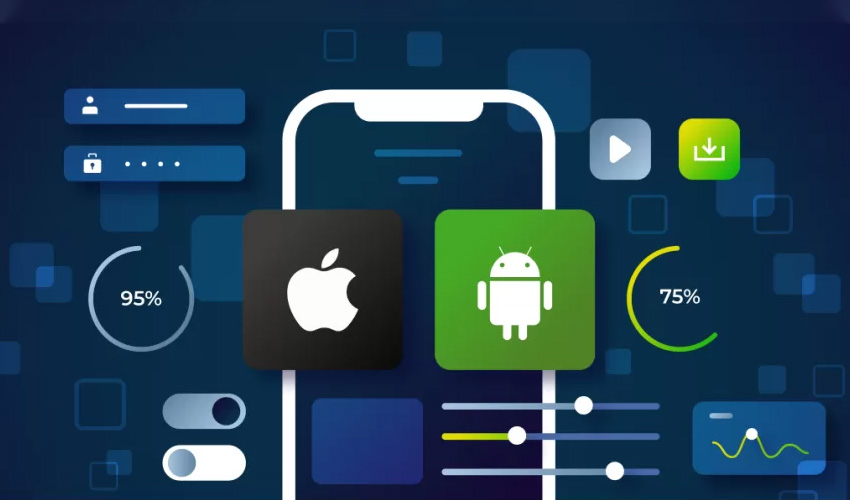In the fast-paced world of mobile app development, cross-platform development has emerged as a game-changer. With Flutter, a powerful open-source framework, you can create applications that run seamlessly on multiple platforms. This article dives into the world of cross-platform app development using Flutter, exploring its benefits, the development process, and how it’s reshaping the industry.
Introduction
Mobile app development is a booming industry. The demand for apps that work seamlessly on different devices and platforms has never been higher. This has led to the rise of cross-platform development.
Table of Contents
The Rise of Cross-Platform Development

Cross-platform development is the practice of building applications that can run on multiple operating systems and devices. It has gained popularity due to several factors:
- Cost-Efficiency: Writing code once for multiple platforms reduces development costs.
- Time Savings: Cross-platform development accelerates the time-to-market.
- Wider Reach: Reach a larger audience across various platforms.
Why Choose Flutter for Cross-Platform Development
Flutter, an open-source UI software development kit created by Google, has become a popular choice for cross-platform development. Here’s why:
- Single Codebase: With Flutter, you write one codebase that works on both iOS and Android, saving time and effort.
- Hot Reload: Developers can make real-time changes to the code and see the results instantly, streamlining the development process.
- Rich Widgets: Flutter offers a wide range of customizable widgets for creating stunning user interfaces.
- Performance: It provides native-like performance, ensuring a smooth user experience.
The Flutter Development Process
The development process with Flutter involves several key steps:

- Installation: Setting up the Flutter environment on your machine.
- Choosing an IDE: Opting for a code editor or IDE (Integrated Development Environment).
- Writing Code: Developing your app using Dart, the programming language of Flutter.
- Testing: Extensive testing to ensure a bug-free app.
- Deployment: Deploying your app to Google Play Store and Apple App Store.
Key Features and Advantages of Flutter
- Open-Source: Flutter is open-source, meaning it’s continually evolving with contributions from the developer community.
- Customizable Widgets: Flutter provides a wide range of widgets to create unique and user-friendly interfaces.
- High Performance: Apps built with Flutter offer native-like performance.
- Hot Reload: Make changes and see them in real-time, increasing developer productivity.
Challenges and Considerations
While Flutter offers many advantages, it’s essential to consider some challenges, such as:

- Learning Curve: Developers need to learn Dart, which might not be as widely known as other programming languages.
- Limited Libraries: Compared to native development, there are fewer libraries available for Flutter.
The Future of Cross-Platform Development
The future of cross-platform development with Flutter looks promising. As Google continues to invest in the framework, we can expect even more exciting features and enhancements in the coming years.
Conclusion
Cross-platform development with Flutter is transforming the way we create mobile apps. Its cost-efficiency, speed, and performance make it a compelling choice for businesses and developers looking to reach a broader audience.
Ready to explore the world of cross-platform development with Flutter? Your next big project might just be a single codebase away.
Frequently Asked Questions (FAQs)
1. Is Flutter better than native development?
It depends on your project’s requirements. Flutter is an excellent choice for cross-platform development, while native development might be necessary for highly specialized apps.
2. What kind of apps can I build with Flutter?
You can build a wide range of apps with Flutter, from social networking and e-commerce apps to productivity and entertainment apps.
3. Is Flutter a beginner-friendly framework?
While it might have a learning curve, Flutter is considered beginner-friendly due to its extensive documentation and community support.
4. Can I use Flutter for web development?
Yes, Flutter allows you to create web applications alongside mobile apps.
5. Is Flutter the future of mobile app development?
Flutter is a promising framework with strong community support and continuous development, making it a significant player in the future of mobile app development.










